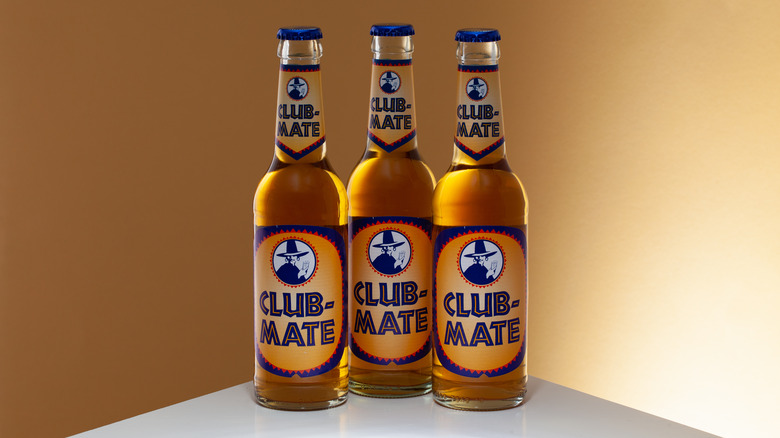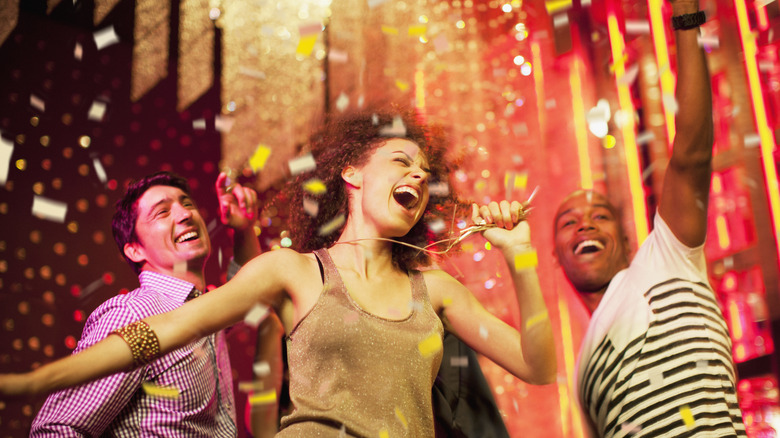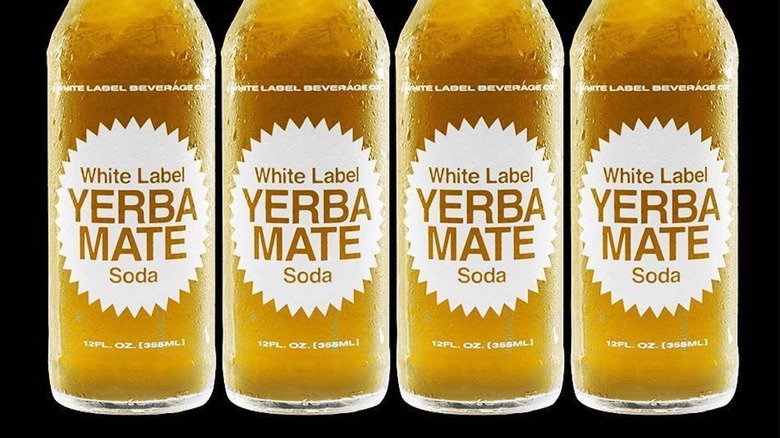Maté Soda: European Club Culture's Fascinating Energy Drink
If you're catching your breath at the club and you need an activity, try to guess which partiers are seasoned regulars and which are plebeians. You might look at outfits, dance moves, and general demeanors to help parse the pros from the newbies, but the biggest way to tell if someone has been around the block rave-wise is by noting how long they last on the dance floor.
It's safe to assume that some of these enduring partiers have chemically induced energy levels, but even so, each and every one of them will tell you that the secret to dancing all night long is — say it with us — hydration (per Gold's Gym and Bella Diva World Dance). Alcohol may fuel short spurts of sweaty, euphoric dancing, but it's not the key to a round-the-clock good time. Sticking to water is great, but clubbers in the U.S. are taking cues from their European counterparts by reaching for a natural energy drink inspired by an ancient South American refreshment.
White Label Maté is like coffee for the club
Energy drinks are nothing new in dance clubs, but brands like Red Bull and Monster aren't exactly known for their natural ingredients or health benefits. Enter White Label Maté, a brand inspired by a longtime energy source for German club kids called Club-Maté, which was adapted from a drink created by German "beverage magnate" Georg Lattier in 1924, per The Outline. According to the outlet, White Label and Club-Maté make use of the "naturally caffeinated" leaves of the South American holly tree, which have been used in indigenous spiritual ceremonies for hundreds of years, per Backpacker.
While clubbers tend to prefer maté in carbonated form, other parts of the world treat the drink like coffee or tea. "Yerba maté is a stimulant, known for offering an even-keeled dose of energy and a measured, calming level of focus," explains The Outline, adding that it has "all the good things about coffee without any of the jitteriness."
From Berlin to Brooklyn
Taking cues from Club-Maté's popularity in European club scenes, White Label Maté has brought a similar non-alcoholic drink to partiers in New York. The Brooklyn-based brand makes soda that tastes "sort of like ginger ale, if the ginger was replaced with maté tea," per The Outline. The brand told The Outline that the soda was created in 2016 as a "cheaper and more widely available" alternative to Club-Maté.
"For a few years now, people have been moving away from traditional sodas and looking for soft drinks with lower sugar content and natural ingredients," said Jesse Rudoy, co-founder alongside John Barclay (of Bushwick's Bossa Nova Civic Club) and Julian Duron. "I think you're going to start seeing the energy drink industry follow that trend too, as people seek out better energy sources," he added. In a 2016 interview cited by Bedford + Bowery, Barclay said that White Label's maté soda has a "metaphysical relationship with techno music."


